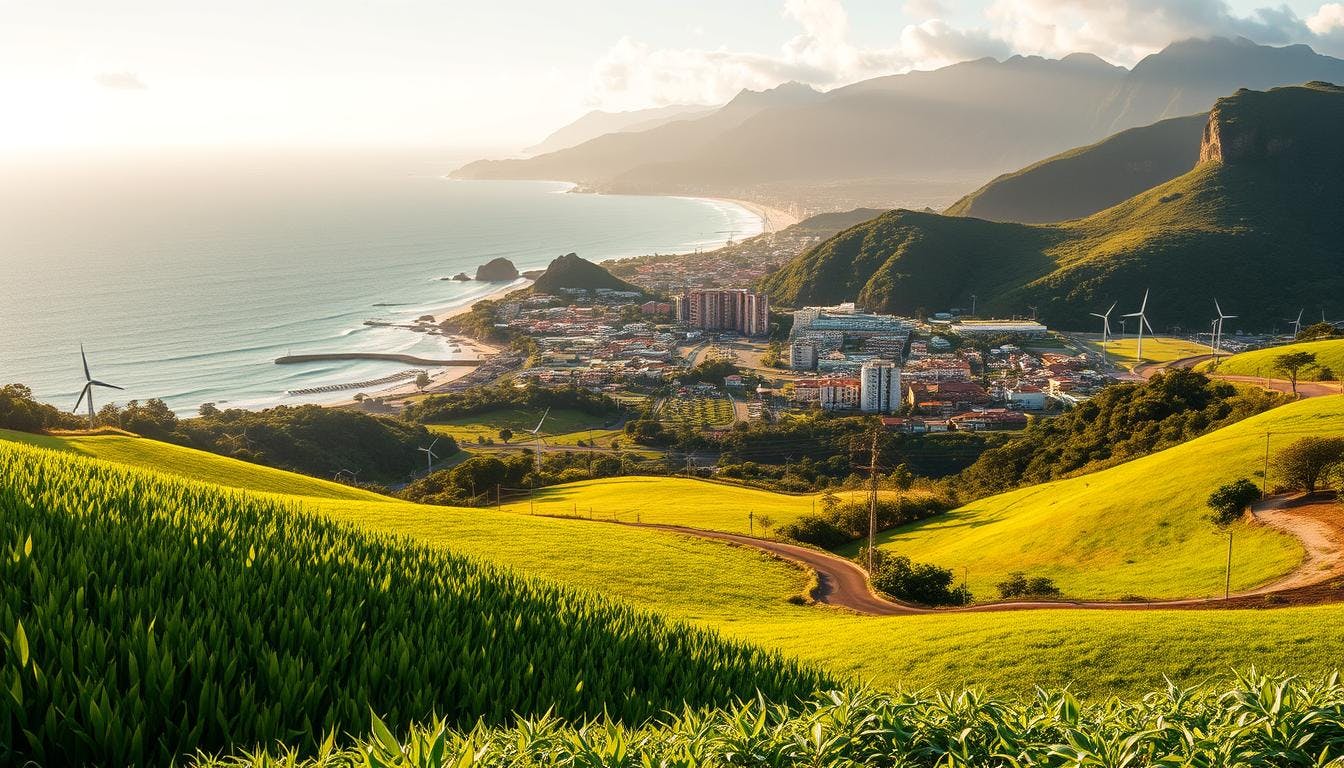Sign up. Be inspired. Get clicking.
How tourism plastic reduction helps marine ecosystems
29 April 2025
Millions of tonnes of waste enter the oceans every year, with coastal activities playing a major part. The travel industry is a significant contributor, with plastic pollution putting marine life and ecosystems at risk. Recent studies show that more than eight million tonnes of plastic reach the oceans annually, much of it linked to tourism. Cruise ships, beach resorts, and recreational activities are key sources of the problem.
Moving towards more sustainable practices is essential. Cutting down on single-use plastics and improving waste management are important steps. The aim is to protect the environment while encouraging responsible travel. Experts warn that, if left unchecked, plastic production could drive major emissions by 2040. Tackling the issue now will help preserve natural ecosystems for future generations. Small but meaningful changes within the industry can have a lasting impact.

The plastic pollution crisis in tourism
Coastal destinations are under increasing pressure from discarded waste. Over 80% of travellers visit beaches, often leaving behind single-use plastic bottles, packaging, and microplastics. Cruise ships alone release around 150,000 gallons of microplastic-contaminated wastewater into the ocean each year.
Remote islands such as Henderson Island collect as many as 13 million plastic bottles annually. The tourism industry is a major driver of this trend, although some airlines have taken steps to address the problem. Delta and United Airlines have banned plastic straws, while Ryanair has eliminated 200 million single-use plastic items since 2019.
Hotels are taking varied approaches. Hilton has removed plastic stirrers, while Soneva resorts have achieved zero waste operations. In the Philippines, Club Paradise Palawan has replaced all disposable bathroom products, showing that practical alternatives are available.
The economic costs are significant. Zanzibar in Tanzania loses an estimated $28 million each year due to polluted beaches. Across the APEC region, the tourism sector faces revenue losses of around $622 million. In the United Kingdom, £11 million is spent annually on clearing plastic waste from Kent’s coastlines.
Marine plastics pose a growing threat to wildlife and human health. Fish and other marine species ingest synthetic particles, which then enter food chains. For coastal communities that depend on fishing and tourism, clean seas are vital — making effective solutions increasingly urgent.

How tourism plastic reduction helps marine ecosystems
Hotels and resorts are demonstrating that sustainable choices can help protect fragile habitats. At Club Paradise in Palawan, cassava starch containers have replaced plastic, reducing non-biodegradable waste by 90%. Refillable pump systems for bathroom amenities prevent the use of over 500 plastic bottles each month, while water purification stations eliminate around 10,000 single-use bottles annually. These changes highlight how small operational shifts can lead to significant environmental benefits.
Research shows that coral reef survival rates improve by up to 90% when plastic pollution is reduced. Biodegradable packaging, such as cassava starch alternatives, breaks down within months, compared to the centuries required for conventional plastics.
In tourism certification, UNWTO-backed Blue Flag beaches must meet strict waste management standards. Meanwhile, the Global Tourism Plastics Initiative now influences around 20% of the global packaging market. On Dimakya Island, compliance with UNESCO Biosphere Reserve guidelines is helping to protect reef ecosystems. These examples show that reducing plastic waste is not only achievable but urgently necessary.
Success stories: hotels and destinations leading the way
Leading destinations show that cutting plastic waste can boost both environmental health and economic returns. At Club Paradise in Palawan, switching to reusable glass bottles reduced waste by 40%, saving thousands of single-use containers each year.
Water Witch’s Versi-Cat skimmers now remove up to two tonnes of floating debris daily from Asian ports. In the United Kingdom, ABTA’s 'Make Holidays Cleaner' initiative helped cut plastic use by tour operators by 35%, demonstrating the sector’s ability to drive meaningful change.
Major companies are also taking action. MSC Cruises has fitted advanced wastewater filtration systems to prevent microplastic discharge. A hotel in the Philippines recorded a $13.7 million increase in revenue after achieving a sustainability certification. Meanwhile, cleaner beaches in Zanzibar led to a 22% rise in tourist satisfaction ratings.
Partnerships such as My Green Trip and Airbnb have helped clean more than 200 miles of coastline worldwide. Royal Caribbean plans to introduce plastic-free cabins across its entire fleet by 2025. Zero-waste resorts like Soneva continue to set new standards for the industry.
These successes show that reducing single-use plastics benefits both the economy and the natural environment. Every initiative strengthens momentum towards lasting global change.


The ripple effect: economic and environmental benefits
Sustainable practices in travel deliver lasting economic and environmental benefits. According to the World Bank, every $1 invested in waste reduction generates $3 in tourism revenue. Resorts with zero-waste policies report guest retention rates 22% higher than average.
Preventing pollution is far more cost-effective than cleaning it up. Tanzania spends $28 million annually to protect its beaches, while Goeje Island in South Korea lost $37 million in tourism revenue due to pollution. In the United Kingdom, cleaning Kent’s coastline created 145 jobs and helped increase visitor numbers.
Without action, plastic is projected to outweigh fish in the oceans by 2050. Resorts introducing composting schemes have reduced food waste by 60%, while installing solar panels has cut energy costs by up to 40%, demonstrating that sustainability measures also save money.
Electric vehicle rentals in the Caribbean have increased by 200%, contributing to lower emissions across the region. Cleaner waters are supporting fish stocks and enhancing food security for coastal communities.
Global change begins with local action, as shown by Kent’s success in combining environmental clean-up with job creation. Across the travel sector, it is increasingly clear that protecting natural environments also drives economic growth. Small steps are already delivering major impacts for the world.
Joining the movement: your role in plastic-free travel
Travellers can drive meaningful change by choosing more sustainable options. The Global Tourism Plastics Initiative provides free resources to help businesses reduce waste. Water Witch’s cleaning systems remove up to five tonnes of debris per hour in heavily polluted areas such as Manila Bay.
Simple actions make a real difference: carrying reusable bags and bottles, and supporting hotels with certified sustainability programmes, all help to reduce environmental impacts. Airlines such as Delta have partnered with refill networks to limit single-use items onboard.
Legislation is also pushing progress. The European Union now requires hotels to cut waste by 90% by 2025, while extended producer responsibility laws in parts of Asia hold brands accountable for plastic waste. Travellers are encouraged to audit their habits, as even small shifts help protect coastal areas and public health.
Every effort matters. Together, we can reduce pollution and its long-term consequences.
17 South Street
Auckland 1010
New Zealand
info@carbonclick.com- -
- X
Subscribe now to stay up to date with CarbonClick, carbon offsetting and climate action.
By signing up you agree to our Privacy Policy.


